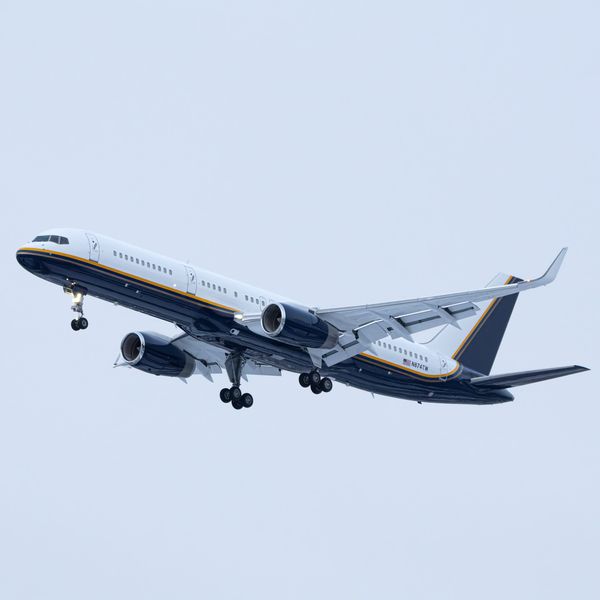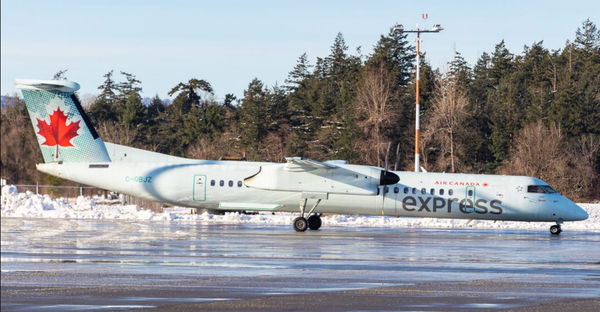An Alaska Airlines aircraft nearly collided with a SkyWest aircraft near Portland International Airport (PDX) on October 16. Alaska Airlines flight AS 1299 departed from John Wayne Airport (SNA) in Orange County, California, at 2:01 p.m. local time and was scheduled to land in Portland later that afternoon. However, poor weather conditions forced the aircraft to abort its attempted landing on an airport runway. This scenario is a go-around when a landing is aborted on the final approach due to unsafe conditions.

Portland witnessed heavy rain and low visibility when the plane was scheduled to land. According to the National Weather Service, Portland saw a quarter inch of rain, which reduced visibility to three-quarters of a mile. The downpour created winds high enough to prevent the aircraft from landing despite the plane already having dropped to an elevation of 100 feet.
This last-minute decision to abort the landing was risky since a SkyWest aircraft departed from a nearby runway to the north. SkyWest Airlines flight 3978 departed from Portland at 3:47 p.m. and landed at Seattle-Tacoma International Airport (SEA) at 4:51 p.m. local time. The Alaska aircraft moved towards the path of the SkyWest plane before changing directions again. An air traffic controller repeatedly warned the pilots of the Alaska plane about a possible collision. No one was injured in this close call.

Alaska Airlines and the Federal Aviation Administration (FAA) are investigating the incident. The FAA plans to "determine the closest proximity between the aircraft as part of the investigation" under its definition of a near midair collision. The FAA defines this as an aircraft under 500 feet of another plane.
Audio from the air traffic controller was obtained by Portland-based The Oregonian. The event started with a controller telling the Alaska flight to maintain the "runway heading path" while the SkyWest flight turned right. However, both aircraft did the opposite and, therefore, switched directions.

The controller later makes several tries to correct the Alaska flight's path by informing the pilot about nearby traffic. The controller told the pilot about traffic to the plane's front and right. The Alaska aircraft turned left while the SkyWest plane turned right to avoid colliding.
After the near collision, the Alaska flight diverted to Redmond Municipal Airport (RDM) in central Oregon. Alaska Airlines will resume its seasonal service between Portland and Redmond on November 29. The airline offers this route since winter weather can make it difficult to travel between the two destinations by road. This difficulty happens because the roads cross the Cascade Mountains, meaning heavy snow can close the route entirely.

The Alaska flight stayed in Redmond for a couple of hours before departing and later arriving in Portland at 11:45 p.m. the same day. Even though at least six other Alaska Airlines flights landed in Portland earlier that afternoon, Alaska flight 1299 could only complete its route seven hours later than expected.
Although the FAA, Alaska Airlines, and SkyWest did not publicize the near-collision, the incident appeared on social media. The YouTube channel VASAviation published an approximately two-minute video about the near-collision. The video has received more than 77,000 views and almost 400 comments over the past four days. Several of the comments came from people with experience as air traffic controllers.
Flydubai, Turkish, and Pegasus Suspend Flights Amid Escalating Unrest and Digital Blackout » Starlux Takes Delivery of First A350-1000 for US East Coast Push » FAA Proposes Mandatory 737NG Stabilizer Inspections Following Reports of Dangerous "Pitch Oscillations" »
Comments (0)
Add Your Comment
SHARE
TAGS
NEWS Alaska Airlines Portland Oregon PDX SkyWest Incident Go-Around Airport Collision Close Call WeatherRECENTLY PUBLISHED
 This Week in Aviation: The 10 Stories That Mattered Most
From major airline developments to aircraft updates and industry shifts, this weekly recap highlights the ten most-read aviation stories from the week of January 04.
INFORMATIONAL
READ MORE »
This Week in Aviation: The 10 Stories That Mattered Most
From major airline developments to aircraft updates and industry shifts, this weekly recap highlights the ten most-read aviation stories from the week of January 04.
INFORMATIONAL
READ MORE »
 NTSB Scrutinizes FAA NOTAM Logic Following Fatal MD 530F Canyon Crash
One week after a private helicopter plummeted into the rugged depths of Telegraph Canyon, the aviation community is reeling not only from the loss of four lives but from the glaring systemic failures it has unearthed.
NEWS
READ MORE »
NTSB Scrutinizes FAA NOTAM Logic Following Fatal MD 530F Canyon Crash
One week after a private helicopter plummeted into the rugged depths of Telegraph Canyon, the aviation community is reeling not only from the loss of four lives but from the glaring systemic failures it has unearthed.
NEWS
READ MORE »
 Air Canada Doubles Down on Regional Strength with Major PAL Airlines Expansion
In a strategic move to fortify its presence in Eastern Canada, Air Canada has officially announced its intent to significantly expand and extend its commercial partnership with PAL Airlines. As of January 8, 2026, the two carriers have signed a Letter of Intent (LOI) that not only secures regional connectivity for the next decade but also introduces a substantial fleet expansion to meet rising demand in Québec and the Maritimes.
NEWS
READ MORE »
Air Canada Doubles Down on Regional Strength with Major PAL Airlines Expansion
In a strategic move to fortify its presence in Eastern Canada, Air Canada has officially announced its intent to significantly expand and extend its commercial partnership with PAL Airlines. As of January 8, 2026, the two carriers have signed a Letter of Intent (LOI) that not only secures regional connectivity for the next decade but also introduces a substantial fleet expansion to meet rising demand in Québec and the Maritimes.
NEWS
READ MORE »



